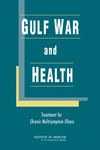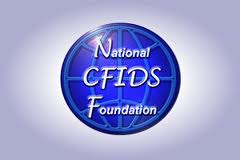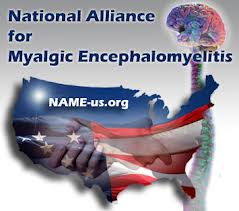View the Post on the Blog
View the Post on the Blog
Mark Berry asks why the US HHS contract with the Institute of Medicine (IOM) to re-define ME/CFS has provoked such an unprecedented storm of protest, and explores the reactions of patients, organizations, experts and bloggers to the so-called 'Death Contract'.

At the latest count, 50 leading ME/CFS clinicians and researchers and 66 well-known ME/CFS patient advocates have called for the HHS contract with the IOM to be cancelled.
On September 23rd, 2013, the US Department Of Health and Human Services (HHS) made an announcement that was to send shock waves through the worldwide ME/CFS community. The HHS contract with the Institute of Medicine (IOM) to recommend new clinical diagnostic criteria for ME/CFS has united ME/CFS organizations, patients, advocates, physicians and clinicians as never before - in opposition to the HHS/IOM contract, or 'Death Contract' as some have called it.
But why has a contract aiming to solve the crucial question of the definition of the disease(s) we call "ME/CFS" provoked such a furore? After all, advocates in the US have been calling on government agencies to address this fundamental problem for years. Now that the HHS has come up with its plan to do just this, why is the ME/CFS community up in arms?
Although the majority of the expert and advocate ME/CFS community has stated clearly its opposition to the contract, some leading organizations and independent advocates have called for varying degrees of co-operation with the HHS and IOM. Is it the right approach to simply say 'no' to this contract, or are the CFIDS Association right when they say that it is in patients' interest to co-operate with this initiative by getting a 'seat at the table'? What of PANDORA's position of opposing the contract but nominating experts to the panel on the basis that they believe that the contract is going to go ahead no matter what we have to say about it, and it's better that the panel takes at least some input from experts in ME/CFS?
In an attempt to answer some of these questions, this article will explore the history of how this contract was suddenly and unexpectedly revealed to the ME/CFS community and signed in the face of an acknowledged public outcry against it; the history of the IOM's recent re-definition of Gulf War Illness as "Chronic Multisymptom Illness (CMI)" best treated with anti-depressants and Cognitive Behavioural Therapy (CBT); and the (mostly outraged) reactions of experts, organizations, advocates and bloggers from across the ME/CFS world.
In combination with Phoenix Rising's new dedicated forum on the IOM contract, and its indexes of chronological events and blogs and articles about the contract, I hope this article will serve as a definitive resource for the community on an issue which seems to me to be critical to the future of ME/CFS science and clinical practice - not only in the United States, but worldwide.
Below, I'll try to summarize the reasons for all the concern, I'll explore the positions of those organizations and individuals who have proposed varying degrees of co-operation with the HHS/IOM process, I'll present some important history about the contract and the IOM's conclusions earlier this year regarding Gulf War Illness, and at the end of the article I'll track the response of ME/CFS organizations (watch our new forum for further updates as events unfold). I'm indebted to Gabby (Nielk) for her sterling work in researching all this information, as well as her ongoing updates of our new IOM forum.

Perhaps most importantly, at the very bottom of this page is a list of actions that YOU can take - people you can email, petitions you can sign - to express your concerns and/or opposition to the IOM contract. There are instructions for both US citizens and concerned citizens worldwide to email US government representatives to register their views, and for a quick and easy action you can sign petitions HERE and HERE.
But first, the news...
Latest IOM News
10/28/2013 - 60 Advocates Back Experts' Letter to Sebelius
Over 60 patient advocates signed and mailed a letter to HHS, stating that they "stand united" in support of the experts’ letter urging HHS to adopt the Canadian Consensus Criteria (CCC) now and cancel the contract with the Institute of Medicine (IOM). The combination of the experts' letter and the advocates' letter represents an unprecedented and historic show of unity from the ME/CFS community.
10/26/2013 - 50 Clinicians and Researchers Send Updated Letter of Protest to Sebelius
A new letter signed by an additional 16 expert ME/CFS clinicians and researchers has been sent to the U.S. Secretary of Health and Human Services (HHS). The letter re-iterates the experts' agreement on adopting the 2003 Canadian Consensus Criteria (CCC) as the case definition for ME/CFS, and strongly urges HHS to follow their lead by adopting the CCC as the sole case definition in all its activities relating to ME/CFS and "abandon efforts to reach out to groups such as the Institute of Medicine (IOM) that lack the needed expertise to develop 'clinical diagnostic criteria' for ME/CFS".
The experts warn that the IOM contract is not only unnecessary and a waste of taxpayer funds, but threatens to "move ME/CFS science backward by engaging non-experts in the development of a case definition for a complex disease about which they are not knowledgeable".
The letter is an updated version of the letter sent on September 23, 2013, which was signed by 35 experts, and lays to rest the suggestion that these experts may have changed their stance following the HHS announcement which was also released on September 23. Statements from the CFIDS Association and PANDORA had appeared to cast doubt on whether the experts still held the same views they expressed in their first letter, citing Dr. Lucinda Bateman who withdrew her support following a communication from the CFIDS Association. PANDORA also suggested that 'at least one' other expert had privately indicated they would be withdrawing their support - but the updated letter retains 34 of the 35 original signatories (with only Bateman withdrawing her name) and adds 16 more. The call to abandon the IOM contract is now backed by 38 US and 12 international clinicians and researchers.
So What's All The Fuss About?
So just why is there such a storm of protest about this contract? Some of the reasons for the strong opposition to the contract are well summed up by Jeanette Burmeister in her blog ‘Thoughts on M.E. - ‘ME Experts agree on Case Definition, Call secretary Seblius’ bluff’
"And are you really going to waste tax-payer money on the IOM contract for a disease that is absurdly underfunded for a task that is redundant? This would serve no other purpose than to continue the government’s policy and tactic of muddying the waters to prevent any meaningful progress in the field of ME, for a long time to come."
The reputed $1m or so that's said to be the cost of this project is clearly striking given the extraordinarily low levels of funding for ME/CFS research - especially so soon after the renowned Professor Ian Lipkin felt compelled to call on the ME/CFS community to press the government to fund the continuation of his ME/CFS studies. And although the community has been calling for so long for a change in the case definition of ME/CFS, the existing consensus definitions - the CCC and ICC - are backed by the majority of experts and campaigners, so the need for a brand new case definition certainly isn't clear to everyone.
But the most telling factor in Burmeister's comments, perhaps, is the skepticism about the HHS' motives and tactics. Simply put, there is a widespread belief amongst ME/CFS advocates - borne of long and bitter experience - that the government's interest in this disease is quite consciously to "manage and contain" the disease rather than to solve it...or indeed to pay for it. The history of government-backed broad case definitions that have made meaningful study of ME/CFS all but impossible, the remarkable resistance to clinically-based consensus definitions aimed at defining more coherent cohorts, and above all the lack of any apparent commitment to seeding meaningful research funding, have made it an instinct for the community to distrust the initiatives of government bodies.
Yet there's much more to the opposition to the IOM contract than this simple reflex - the resistance goes much further and deeper than that. Recent years have seen renewed determination from many independent advocates and organizations in the US to work with government bodies and co-operate with them to move ME/CFS forward. Community leaders have called for patience, trust and co-operation. Slowly but surely, bridges have been built, positive relationships have been fostered, and initiatives like the FDA's Stakeholder Meeting and the NIH's State of the Knowledge Workshop have been warmly welcomed by the community as signs of a new and more open approach. The IOM Contract threatens to shatter that positive and progressive developing relationship between the patient community and the US health authorities.
Some Key Concerns
This summary of some of the issues highlighted by Phoenix Rising forum members and others may explain why the concern about this contract is so great, and why the community is deeply skeptical about HHS' intentions and the idea that the IOM contract can produce anything but a monumental setback for ME/CFS patients:
- The great haste and secrecy with which the HHS has set up this contract, which has precluded patient input and timely objection and suggests an ulterior motive. The 'sole solicitation' for the contract gave a notice period of 3 days. The contract was then apparently withdrawn in response to acknowledged public pressure - only to resurface weeks later as a fait accompli. Even obtaining the Statement of Work for the contract wasn't straightforward. Then, just 3 days were made available for selected organizations to nominate experts to sit on the IOM's panel. From such beginnings, can anyone seriously believe that this project - pushed through despite protests from experts and patients alike - has any intention of including and listening to the voice of the ME/CFS community?
- The deliberate circumventing of the CFSAC recommendations by the HHS. After the community's recommendations - expressed through CFSAC - were made so clear (as described below), why did the HHS decide to ignore those recommendations and go its own way? By removing all the important aspects of CFSAC's recommendation, and indeed doing almost the exact opposite, HHS has sent a clear signal that it has no intention of listening to input from the ME/CFS community.
- The disrespectful refusal of the HHS to acknowledge or respond to the joint objection from ME/CFS experts. Any hopes we might have for the IOM Contract surely lie with the ME/CFS researchers and clinicians who understand this disease better than anyone. Can we really hope that they will be listened to now, and included in the process, after first 35 and now 50 of the leading experts have written an open letter expressing their concerns and received no acknowledgement?
- The IOM’s stated commitment to disallowing “biased” panel members will likely be used to exclude expert ME/CFS clinicians and researchers. How will the IOM be defining "bias" as a reason for exclusion from the panel? Since the panel is meeting to decide on a clinical case definition, leading experts who have stated publicly their support for the CCC might very well be excluded from the panel. In this way, the constitution of the process seemingly allows the IOM to exclude anyone with expertise in ME/CFS from the process of defining it.
- The IOM’s infatuation with evidence-based medicine (EBM), while laudable in some ways, is inappropriate for the task. EBM is inadequate when confronted with medical ambiguity and will likely serve as a filter that overstates the value of pseudoscientific psychogenic research due to its disproportionately biased funding - as was the case when they reported on GWI.
- The precedent set by a similar IOM contract for Gulf War Illness (GWI). The resulting report - published in January 2013 (and discussed in more detail below) - was produced by a costly panel, consisting entirely of non-experts and supporters of psychological approaches, that ignored research on biological abnormalities and redefined GWI as 'Chronic Multisymptom Illness' (CMI), officially recommending only psychological interventions for a devastating physical disease. Is this the body we are to trust with the re-definition of ME/CFS? Is there any way that the community can afford to trust an organization with that recent history? Surely the IOM's findings on GWI are a clear indication of what this project is all about?

Image courtesy of Heb:
http://commons.wikimedia.org/wiki/User:Heb
Considering these points, it's not hard to see why this contract has the ME/CFS community afraid, anxious, angry, and active in opposition to it. The lack of consultation and the failure to listen to the community from the outset; the inappropriate structure of the IOM's process which seems biased towards a superficial and damaging outcome; and most tellingly of all, the dreadful outcome of the recent IOM report on GWI - all of these factors have sent alarm bells ringing loud and clear across the ME/CFS world.
And whilst there are some differences in opinion and approach to the IOM Contract issue amongst the community - some dissenting voices are discussed below - a few headline points seem almost indisputable areas of broad agreement:
- The way this contract was drawn and ‘sprung’ on the community was completely non-consultative and non-transparent at best, and deceitful at worst.
- HHS did not take the advice of any ME/CFS stakeholders in the planning of the contract.
- The IOM contract does not satisfy any aspects of the CFSAC recommendation (as described below).
- The IOM is not the ideal body to be tasked with clinically defining ME/CFS.
- There is great angst amongst the community as to the selection and makeup of the IOM panel.
- The outcome of the IOM's work - if it goes the same way as it did with GWI - could be disastrous for ME/CFS patients.
"A Seat At The Table" - Arguments for Co-Operation
Whilst it seems clear that the overwhelming majority of ME/CFS researchers, clinicians, advocates, bloggers and organizations stand in clear opposition to the IOM Contract - the letters to Secretary Sebelius are testament to that - a handful of major names in the ME/CFS world have called for more nuanced, collaborative or co-operative approaches, and one organization (the CFIDS Association) and one physician (Dr. Lucinda Bateman) have supported the HHS/IOM Contract. So the ME/CFS community cannot quite claim to be unanimous in its call for the IOM Contract to be cancelled...
CFIDS Association

The position of the CFIDS Association and of Dr Bateman are examined in more detail under the heading "Reactions from ME/CFS Organizations" below. In short, the CFIDS Association have backed the IOM Contract and believe that the Canadian Consensus Criteria (CCC) "can be optimized as a clinical case definition by applying a standardized methodology of execution, through validation of criteria, and a nationwide dissemination to health professionals" - implying that this is what they hope the IOM process will achieve. It has also been claimed that the CFIDS Association have already secured a "seat at the table" although I have not seen any confirmation of this. Dr Bateman originally signed the letter opposing the IOM contract, but later withdrew her support and backed the IOM contract, when contacted by the CFIDS Association.
It is striking that the CFIDS Association appears to be the only ME/CFS organization prepared to publicly support the IOM contract, and Dr Bateman (a former CFIDS Association board member) the only ME/CFS expert to have done so. Assuming that the IOM contract proceeds, the CFIDS Association seems to have staked its reputation on the success of this contract. The organization is already viewed by many advocates as a puppet of the government and a betrayer of the interests of ME/CFS patients, and if the IOM's report on ME/CFS realizes the worst fears of the community, the CFIDS Association's name will surely be a lot worse than mud in the ME/CFS world. On the other hand, if the CFIDS Association is right and the IOM ends up operationalizing and disseminating the CCC, they will have been proven right and will have delivered for patients in a big way.
PANDORA

Both scenarios assume that the HHS/IOM contract will not be stopped, of course. PANDORA's position is based on the belief that the contract cannot be stopped, and that if the project is to proceed it is critical that the community obtain representation on the IOM panel. Although PANDORA continues to oppose the IOM Contract - and its position statement is in clear alignment with the views expressed by the experts and advocates in their letters - the organization has taken a great deal of criticism for its 'collaboration' with the IOM by recommending experts to sit on the panel.
PANDORA has been accused of sacrificing the interests of patients for the sake of getting its own 'seat at the table'. But is it really so unreasonable or contradictory to both oppose a process and at the same time to fight to ensure that if it does go ahead despite the protests, the community has a chance to gain some representation in that process? And is such a position taken out of narrow self-interest, or because of a responsible concern to defend the interests of patients in whatever way is available?
This particular argument is perhaps impossible to resolve even after events have unfolded. If PANDORA stands firm in supporting community actions against the IOM contract, but the contract proceeds and results in a negative outcome, PANDORA will have done all it can to oppose the contract, and all it could to work for the success of the contract if it does go ahead, but there will still be those who believe (however dubious this may be) that the contract might have been stopped, or might have been easier to oppose or ignore, if PANDORA hadn't nominated any experts for the panel. If the contract is stopped, many will say (however unfairly) "no thanks to PANDORA". If the IOM report is a success of course, PANDORA will join the CFIDS Association in taking great credit. In any case, if PANDORA now proceeds to join with the majority of the community in vigorously opposing the IOM contract, it would seem to this writer rather unfair to blame the organization for hedging its bets and attempting to mitigate a potential disaster.
Cort Johnson and Bob Miller

Cort Johnson
Finally, two prominent and independent-minded advocates - Cort Johnson and Bob Miller - have taken up distinctive 'middle ground' positions on the issue, still holding out hope that the gulf between the HHS and the experts can be bridged. In Cort's October 27th article, he acknowledged that the approach so far of the HHS has been "a template for how not to deal with [a] hot-button topic", and that the contract is vague on detail and "does not bake in significant ME/CFS participation", but still held out hope for a "Middle Road" in which the HHS re-writes the contract in negotiation with the community: "ME/CFS experts in collaboration with DHHS officials and IOM representatives should get together and work out a contract that’s is responsive to both the ME/CFS community’s needs to have substantial ME/CFS expert input, and to the DHHS’s desire to have outside input". And if that doesn't happen, Cort argued, the community should "shift its efforts from trying to stop the process to ensuring that it works".
Bob Miller backed Cort's position is his comments on Cort's article, noting that so much of what is theoretically on the table here is exactly what advocates have been pressing for for years - a real definition, clinicians education, money - and this does not have to be an 'All or Nothing Deal'. "Call it what you will, Middle of the road, Deal making, Negotiation…What matters is we do it right and they get it right. I supported our expert’s letter, I have spoken with several experts, they are not declining input from other areas of science. Let’s do this right and together."
Is There Still an Opportunity to be Involved?
In the positions of all those who do not straightforwardly oppose the HHS/IOM contract - the CFIDS Association, PANDORA, Cort Johnson and Bob Miller - there is still essentially agreement with the wider community on the proper aims of the process: the establishment and dissemination of an appropriate definition along the lines of the CCC, formulated with the genuine consultation of the ME/CFS community. Where they differ from the rest of the community is in their belief that it may still be possible for the ME/CFS community at large to have a meaningful input into the process. The idea that the contract might be re-written, or greater community involvement might be achieved through negotiation, may seem unrealistic given the secretive and intransigent way that the contract was awarded (not to mention the way the process worked out when the IOM tackled Gulf War Illness), but if genuine consultation and involvement could be achieved the result could potentially be hugely positive for the ME/CFS community. And if the contract is going to go ahead, then - unpalatable as it may be - the ME/CFS community may eventually be obliged to accept the need to at least attempt to engage with the process insofar as it is allowed to do so.
Nevertheless, there's no shortage of desire amongst the wider ME/CFS community to be listened to and to responsibly represent patient and expert perspectives within a consultation process - the real question is whether there is really any genuine desire on the part of the HHS and IOM to listen and take anything that is said on board. Is there still a small window of opportunity left for the community to be constructively involved in this process, or is there nothing meaningful left to us but opposition to it? When one looks back at the history of how this contract came to be - a history of implacable resistance to the very perspectives that patients wish to present - things do not look terribly promising...
Background History of the IOM Contract
The history of how the IOM Contract was revealed to the ME/CFS world goes some way towards explaining the ME/CFS community's anger and concerns about it. For a full chronology of events (updated as events unfold), see our dedicated forum thread. What follows is a summary of the key events and background.
The Recommendation
At its October 2012 meeting, the CFS Advisory Committee (CFSAC) put forward a recommendation to the US Department of Health and Human Services (HHS) regarding the case definition for ME/CFS. Here is that recommendation, with some key elements highlighted in bold:
"...that you will promptly convene (by 12/31/12 or as soon as possible thereafter) at least one stakeholders’ (ME/CFS experts, patients, advocates) workshop in consultation with CFSAC members to reach a consensus for a case definition useful for research, diagnosis and treatment of ME/CFS beginning with the 2003 Canadian Consensus Definition for discussion purposes."
At the same October 2012 CFSAC meeting, Dr. Lee stated:
"In general, the Federal Government isn’t in the position of telling doctors a case definition. I think a recommendation from CFSAC that the Secretary should tell people to use “X” definition will go nowhere because that’s not what we do. This is a clinical decision that has to come from the clinical community."
"I’ve been in two or three meetings with the Secretary since I’ve been here. One of them was around this: the idea of a case definition, the need for one, and in addition, the need for a different name for the disease. She basically said that this has to be coming from the medical community. Just to let you know, that’s her belief."
The Contract
Less than a year later, on August 27, 2013, the Department of Health and Human Services (HHS) announced an intent for ‘sole solicitation' with the Institute of Medicine (IOM) for a study of diagnostic criteria for Myalgic Encephalomyelitis (ME) / Chronic Fatigue Syndrome (CFS). The notice gave competing sources just 3 days to submit a bid for the contract, and stated that if no other statements of capabilities were received the contract would be awarded to the IOM.
This announcement came as a shock to the ME/CFS community and left organizations, advocates and patients alike scrambling to organize their response - and faced with some very tight deadlines to do so. HHS did not consult nor divulge this action to their own Chronic Fatigue Syndrome Advisory Committee (CFSAC) members nor to other ME/CFS stakeholders. The lack of warning and consultation, and the very short deadline, naturally resulted in an outraged response from the ME/CFS community, which began a robust (albeit ad-hoc) campaign of e-mails to HHS calling on them to abandon the project.
On September, 4 the following message appeared on the Federal Business Opportunity website:
"Because of all of the concern from the public surrounding this potential sole source requisition, we have decided to discontinue this request."
Later the same day, the following notice was added:
"This request has been cancelled. However, HHS will continue to explore mechanisms to accomplish this work."
The ME/CFS community breathed a collective sigh of relief...which was abruptly cut short on September 23, 2013, with the announcement by HHS that - despite its earlier statements - it had entered into a contract with the Institute of Medicine (IOM) to begin work developing a “clinical diagnostic criteria” for ME/CFS.
By excluding stakeholder involvement, by working outside the CFSAC purview, and by promising to build a new clinical definition from scratch, HHS had ignored three crucial details of CFSAC's recommendation (highlighted in bold above). The reversal of the public announcement by HHS on September 4th that it was abandoning pursuit of this contract due to "concern from the public" only served to heighten the fears of the community about the the true motivations driving the HHS and its willingness to take seriously the concerns of the patient community.
The Expert Response
On the same day that the contract was announced, 35 leading international researchers and clinicians in the field of ME/CFS took the unprecedented step of writing an open letter to HHS Secretary Kathleen Sebelius, announcing that they had reached a consensus on adopting the Canadian Consensus Criteria (CCC) as the research and clinical case definition for ME/CFS.
The experts called for HHS to follow their lead by using the Canadian Consensus Criteria as the sole case definition for ME/CFS in all of HHS’ activities relating to the disease, and strongly urged HHS to abandon its plans to reach out to groups like the Institute of Medicine to develop clinical diagnostic criteria.
"In addition, we strongly urge you to abandon efforts to reach out to groups such as the Institute of Medicine (IOM) that lack the needed expertise to develop “clinical diagnostic criteria” for ME/CFS. Since the expert ME/CFS scientific and medical community has developed and adopted a case definition for research and clinical purposes, this effort is unnecessary and would waste scarce taxpayer funds that would be much better directed toward funding research on this disease. Worse, this effort threatens to move ME/CFS science backward by engaging non-experts in the development of a case definition for a complex disease about which they are not knowledgeable."
Jennie Spotila in her article ‘The Experts" on OccupyCFS noted:
"There are some big names on this letter. Ten of the signatories are current or former members of CFSAC. Four of the seven clinicians participating in CDC’s multisite study have signed on to this letter. Four are co-authors of the CCC and twelve are co-authors of the ME-International Consensus Criteria."
IOM on Gulf War Illness (GWI): A Worrying Precedent

The sudden and unexpected announcement of the HHS contract with the IOM prompted ME/CFS advocates to take a closer look at the Institute of Medicine - and what they discovered raised fears about this contract to fever pitch.
Following a similar exercise to that planned for ME/CFS, in January 2013 the IOM issued its report “Gulf War and Health: Treatment for Chronic Multisymptom Illness”. The IOM's report renamed Gulf War Illness to "Chronic Multisymptom Illness", found that the treatments for "CMI" with the best evidence of efficacy are anti-depressants and Cognitive Behavioural Therapy (CBT), and recommended that the most promising treatments lacking evidence - which should be a focus for further research - are "biofeedback, acupuncture, St. John’s wort, aerobic exercise, motivational interviewing, and multimodal therapies". The IOM's definition of 'CMI' not only removed from the name of the illness any mention of the Gulf War, but also further muddied the patient cohort, prompting Gulf War veteran and VA Gulf War Research Steering Committee member Anthony Hardie to complain that the IOM had "‘defined [the disease] so broadly as to include any human being."
The panel at IOM that worked on this redefinition of GWI had only one member with any real experience of the condition and several panel members were psychologists. One USA Today article back in June quoted Hardie asking why the IOM panel should include experts in psychosomatic illness: “Why are there people on a panel that has nothing to do with their expertise? To me as a veteran, that’s insulting.”
This eight minute video of Anthony Hardie’s testimony on the IOM's study of treatment for GWI (or 'CMI') serves as a stark warning to the ME/CFS community of what is likely to lie ahead when the IOM turns its attentions to diagnostic criteria for ME/CFS. Hardie states:
"...the statutory mandate was for IOM to, 'convene a group of medical professionals...experienced in treating' 1990-91 Gulf War veterans. Instead, VA created a charge to the committee that it was to conduct a highly restricted literature review of published studies – which missed the entire statutory intent of eliciting potentially effective treatment modalities from experienced practitioners already caring for ill Gulf War veterans."
"..the process was fatally flawed through the actions of VA and likely other staff. The result was the well-intentioned, veteran-focused panel members almost entirely failed to meet the committee’s statutory mandate requiring a focus on consultation with medical practitioners experienced in treating ill Gulf War veterans, which could have gleaned important, beneficial insights. Furthermore, the final report included nearly 50 pages of recommended psychological treatment for a condition that is not psychiatric in nature. Finally, the report missed the main point emphasized by the 2010 IOM panel: effective treatments for GWI do not yet exist, but likely can be found, and a renewed national effort is recommended to develop treatments and preventions."
A June 2013 Forbes article on panel selection for GWI noted:
"Dr. Kenneth Shine, a former IOM president who is chairing the committee, said it will be challenging to develop a new definition that is both specific enough to guide research but also sensitive enough to describe symptoms that a physician might see in a patient. It is also a unique task; Shine could not recall when the IOM was last charged with defining a disease."
Having re-defined Gulf War Illness, the IOM now stands poised to attempt a re-definition of ME/CFS. Advocates are naturally wondering why an agency with no expertise in either GWI or ME/CFS, and no history of defining a disease, has suddenly been charged with re-defining both GWI and ME/CFS? And having seen what the IOM has concluded regarding GWI (now "Chronic Multisymptom Illness"), there seems to be little or no basis for the ME/CFS community to believe that the outcome of the IOM's next report will be a positive one.
Reactions From ME/CFS Organizations
CAA

The CFIDS Association of America came out with an initial statement on October 2nd, in support of the IOM contract. They feel that working with the IOM will bring about the best results for patients.
"We all acknowledge the need for evidence based, broadly accepted clinical and research tools that can accurately include or identify all subsets of the broad heterogeneous group that presents under any case definition of ME/CFS. We feel that the Canadian Clinical Consensus can be optimized as a clinical case definition by applying a standardized methodology of execution, through validation of criteria, and a nationwide dissemination to health professionals."
The CFIDS Association statement also revealed that they had contacted signatories of the experts’ letter to ask them for "further information and input" - although rumors (later denied) began to circulate that the CFIDS Association had asked the experts whether they were re-considering their position now that HHS had announced that they had now signed the contract with IOM - and perhaps even put pressure on them to change their stance. Although the CFIDS Association statement stated: "Several signatories stand firm by the letter. Several signatories thought the IOM contract could work", all of the signatories except Dr Lucinda Bateman have since signed a further letter confirming that they remain opposed to the IOM Contract.
Dr. Lucinda Bateman, one of the experts who signed the letter to HHS, then issued her new position in favor of the IOM contract:
"...3. The Statement of Work [everyone should read it] appears thoughtful and informed—much better than I had expected based on early concerns about the contract. We can remain actively engaged in calling for a committee that is empowered, experienced and scientifically grounded. We can respond to the committee’s results. We can regroup if they fail or fall short.
4. To the best of my knowledge, the contract has been awarded, so we should now do what is in our power to make it as successful as possible."
On October 8th, the CAA published a clarification statement, ‘Clearing the Air’, in reply to allegations that they had tried to change the minds of the 35 experts who signed the open letter to HHS.
"While we understand the concerns over the contract with the IOM: fears that the right people will not be on the committee, leading to a lack of commitment and faulty results, we believe it is in the patients best interest to continue to foster a positive working relationship with HHS and IOM. No single organization can solve ME/CFS on its own. We must have the cooperation and involvement of the various federal agencies to increase research funding and achieve real progress. We can only do that if we are at the table."
For some heated discussion about the CFIDS Association's actions and statements read HERE and HERE.
PANDORA

PANDORA Org issued a Position Statement on ME/CFS Criteria on September 26th and another one on October 14th.
They summarized their stance as follows:
- Only ME/CFS experts have the experience and knowledge to define the disease.
- A consensus among experts and the medical professional community at large and government health agencies on how to diagnose the disease is greatly needed.
- The 2003 ME/CFS Clinical Working Case Definition, Diagnostic and Treatment Protocols (also called the “Canadian Consensus Criteria” or “CCC”) is far superior to the 1994 International Case Definition (Fukuda) or Oxford definition, but the current state of scientific knowledge has shown a clinical definition with biomarkers and treatment subgroups is now possible and needed. Any effort to update the definition should start with the 2003 CCC.
- A definition that tells how to distinguish those with severe functional limitations is needed.
- Any effort to improve the definition must include replacing the “CFS” moniker.
- At least three different definitions are needed: a clinical definition, a more narrow research definition, and a clinical pediatric definition, and these should be developed together from the same initiative."
Although PANDORA opposes the IOM contract, and despite having only 3 days' notice before the deadline, PANDORA submitted a list of ME/CFS experts for consideration to sit on the IOM panel. in their second position statement they revealed and defended that decision:
“We realized that if we do not work to put our experts on the committee, we will create the very thing we are against: non-ME/CFS experts deciding how to define the disease. It will be us to blame then and not the IOM or the government.“
On October 25th, PANDORA recently reached out to Dr. Wanda Jones for help in clarifying issues with the IOM contract. In their letter they asked her the following questions:
1. Can the IoM contract be stopped? If not, why not?
2. Can the Dept. of HHS endorse the 2003 CCC as patients, many ME/CFS experts and the CFSAC want? If not, why not?
3. Why did the Dept. of HHS not follow the CFSAC recommendation to host a workshop of ME/CFS experts and instead contracted for the IoM to do a study?
4. Considering that the Gulf War illness treatment study came back with requiring only two symptoms for diagnosis and that the NICE Guidelines are one of the things considered in the ME/CFS IoM study, what guarantee do the patients and ME/CFS experts have that something more broad, and therefore more harmful, than Fukuda won't be the result?
For discussions of PANDORA’s position and statements, read HERE and HERE.
National CFIDS Foundation

The National CFIDS Foundation issued a statement on October 16th defining their stance against the IOM contract:
"The NCF is against the Institute of Medicine and their "efforts". Our government has already proven more than capable of ignoring scientific work with Gulf War Illness and given it a much more obscure name by the IOM just as a CDC committee did with ME decades ago and whose committee members became authors of the first Holmes criteria."
NAME-US

On September 25th, The National Alliance for Myalgic Encephalomyelitis issued their statement in support of the experts:
"Heed our respected experts and follow their lead! THEY are the hands-on, lifelong, highly regarded specialists with this disease; government officials and agencies do not have this wealth of experience. The signatories state that they stand ready to work with you - that is an honor and deserves more respect than our taxpayer-funded agencies have shown."
On October 27th, NAME-US published an article arguing that the HHS/IOM Contract can be terminated - and explaining the legal basis for doing so.
How YOU Can Oppose the IOM Contract

Unfortunately, the window for sending recommendations for positions on the IOM panel has passed. However, it is still possible to read, discuss, and engage with the issue by visiting Phoenix Rising's special sub-forum dedicated to the issue.
Additionally, you can take part in supporting the 50 experts and urging the HHS to cancel the IOM contract as follows:
For U.S. citizens:
Simple instructions for e-mailing your congressional representatives HERE.
For everyone worldwide:
Simple instructions for e-mailing President Obama's science advisers HERE.
Simple instructions for e-mailing president Obama and vice president Biden HERE.
You can sign the petition to stop the IOM contract HERE.
The petition in support of the expert's letter is HERE.
Phoenix Rising is a registered 501 c.(3) non profit. We support ME/CFS and NEID patients through rigorous reporting, reliable information, effective advocacy and the provision of online services which empower patients and help them to cope with their isolation.
There are many ways you can help Phoenix Rising to continue its work. If you feel able to offer your time and talent, we could really use some more authors, proof-readers, fundraisers, technicians etc. and we'd love to expand our Board of Directors. So, if you think you can help then please contact Mark through the Forum.
And don't forget: you can always support our efforts at no cost to yourself as you shop online! To find out more, visit Phoenix Rising’s Donate page by clicking the button below.
View the Post on the Blog
Last edited by a moderator:

